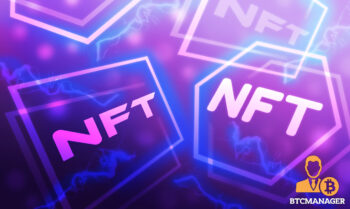
2023-3-23 22:15 |
In the turbulent world of finance, cryptocurrencies have emerged as a groundbreaking force, posing a challenge to traditional systems and structures and rattling the pillars of the global banking elite. But crypto now finds itself in a fierce struggle for survival, as powerful entities conspire to undermine its progress.
As we uncover the not-so-secret plan to kill crypto, we will examine the strategies used by governments, banks, and media to retain control over the financial world and suppress the decentralization and freedom that cryptocurrencies offer.
A Concerted Assault on CryptocurrencyTo preserve legacy finance’s dominance and maintain control over the global financial system, governments, banks, and media seemingly collaborate, seeking to undermine the digital currency revolution. Their objective is to prevent the decentralization that cryptocurrencies promise.
Spreading FUD: A Manipulative TacticThanks to potent public opinion manipulation, fear, uncertainty, and doubt (FUD) plague crypto. Misleading headlines, skewed reporting, and the magnification of security breaches provoke unease, eroding trust in digital assets. Such tactics reveal an agenda aimed at crippling the industry and deterring potential adopters. By perpetuating FUD, these powerful entities instill skepticism, impeding mainstream acceptance of cryptocurrencies.
Regulatory Stranglehold: Hindering GrowthTo protect entrenched interests, regulators and financial institutions impose stringent regulations and leverage tax enforcement. These oppressive measures stifle crypto adoption, undermining the potential for a more inclusive financial landscape. The relentless pressure exposes a bid to maintain the existing order.
Crypto exchanges and startups face a labyrinth of regulatory requirements, hindering innovation and driving up costs. Furthermore, the threat of sudden policy changes and regulatory clampdowns looms large, discouraging entrepreneurs and investors from venturing into the crypto space.
Media Complicity: Tarnishing Crypto’s ImageBy downplaying issues in traditional finance, some of the mainstream media seem complicit in promoting anti-crypto narratives. They foster a distorted discourse, perpetuating a dim view of digital currencies, shielding the establishment from innovation’s transformative impact. By sensationalizing stories of fraud, hacks, and other negative events in the crypto sphere, the media promote a biased outlook that undermines public confidence, reinforcing resistance to change.
Scapegoating Crypto: Deflecting ResponsibilitySome in the financial industry have tried to use the decentralized nature of cryptocurrencies to undermine their legitimacy. For instance, in 2018, the head of JPMorgan Chase, Jamie Dimon, publicly criticized Bitcoin, labeling it a “fraud” that would eventually “implode.” However, the bank has created its own digital currency JPM Coin, suggesting that its opposition was not to the idea of cryptocurrencies per se, but rather to the challenge they posed to the traditional financial system.
By shifting public ire towards digital currencies, the powerful try to avoid blame for the banking crisis. They divert attention from their own failings, such as lax regulation and irresponsible lending practices, masking systemic flaws, ensuring traditional finance remains unchallenged.
These entities exploit cryptocurrencies’ decentralized nature, portraying them as a breeding ground for criminal activity and financial instability. By scapegoating crypto, they absolve themselves of responsibility and conveniently ignore the shortcomings of the current financial system.
Bitcoin cryptocurrency symbol on yellow balloon about to be popped. The SEC’s Stance: Classifying CryptoThe SEC, under Gary Gensler’s leadership, classifies Bitcoin as a commodity, while deeming other digital assets securities. This distinction carries far-reaching implications for the industry’s future, affecting everything from taxation to investment.
Bitcoin: A Commodity in the Regulatory CrosshairsAs a commodity, Bitcoin faces regulatory scrutiny. Agencies like the CFTC may impose restrictions, affecting its accessibility and adoption. Such constraints demonstrate an ongoing effort to curtail crypto’s growth and limit its potential to challenge traditional financial institutions.
The Security Label: A Threat to InnovationDesignating other cryptocurrencies as securities poses a significant challenge for innovators. Burdensome regulations and compliance costs threaten to stifle creativity and hinder the development of novel blockchain applications. The security label serves as yet another weapon in the arsenal of crypto’s powerful adversaries, further complicating the industry’s ability to flourish.
The Future of Crypto: Navigating a Hostile LandscapeCrypto must adapt to survive. By embracing regulation, combating misinformation, and fostering collaboration, it can shine in an increasingly antagonistic environment.
The industry’s resilience may, ultimately, determine its destiny. One potential area for growth is in the development of decentralized finance (DeFi) applications, which offer a new way to access financial services without intermediaries. By utilizing blockchain technology, DeFi can enable more accessible financial products, such as loans, insurance, and savings accounts, that were previously only available to the privileged few.
However, DeFi also faces regulatory challenges and security risks, requiring the industry to strike a balance between innovation and responsible development. Despite these challenges, DeFi represents a promising avenue for crypto’s future, showcasing the industry’s ability to adapt in the face of adversity.
Crypto: Persevering Through ChallengesCrypto’s proponents must also prioritize educating the public and dispelling myths surrounding digital currencies. By increasing awareness and understanding, they can cultivate a more informed and accepting society. Additionally, the industry should engage with regulators to establish a balanced framework that protects consumers while promoting innovation.
Despite mounting challenges, the future of crypto remains promising. Collaboration among industry players, constructive dialogue with regulators, and educational efforts can all contribute to a stronger ecosystem. The not-so-secret plan to kill crypto may be in motion, but with resilience and determination, the crypto revolution can still flourish.
The post The Not-so-Secret Plan to Kill Crypto appeared first on BeInCrypto.
origin »Bitcoin price in Telegram @btc_price_every_hour
LALA World (LALA) на Currencies.ru
|
|





















